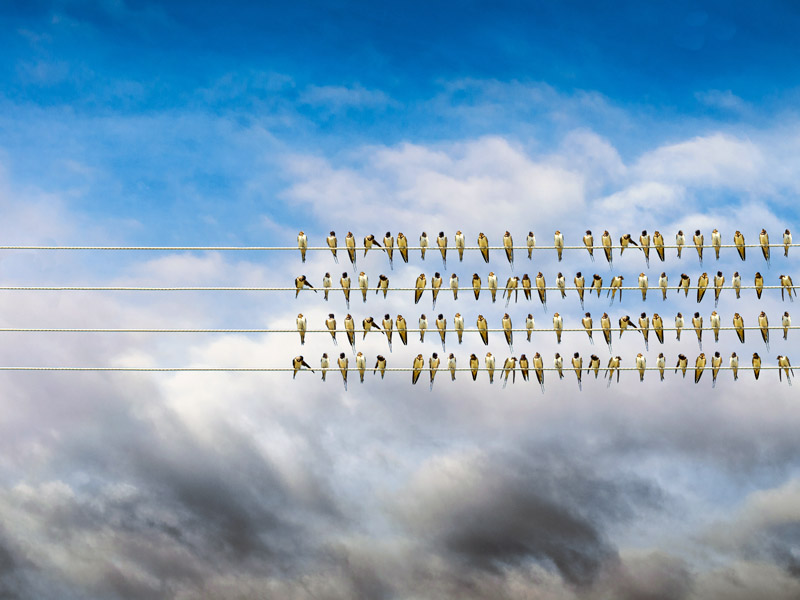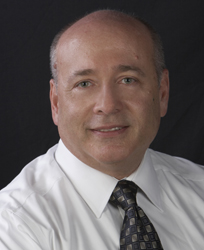
- 7 January 2021
Share:
These last months of the annus horribilis, 2020, and the opening days of 2021, a year which we fervently hope holds promise for healing, have vividly demonstrated the crucial role that followership plays in our communal life. We have witnessed the best and the worst.
Globally, we have been united in a way we would not wish, by the COVD-19 pandemic. There have been examples of excellent leadership in government, the scientific community, and, perhaps redemptively, the pharmaceutical industry, alongside glaring failures of political leadership in too many countries. Yet, a crucial determinant of outcomes has resided equally, if not more so, with the variations of followership behavior. These range from the courage of front-line workers who have kept our hospitals and food supply functioning, to the public resistance to masks and other safety directives that has contributed to the scale of viral infections.
The political sphere is even more complex. Writing from the United (?) States of America, I will contain my remarks to the leadership and followership dynamics in this national polity, which much of the rest of the world has observed with grave concern.
THE GOOD
All systems of democratic organization and voting are imperfect. Serious thinkers dating at least back to Condorcet and Borda in the 18th century, have examined the limitations and options for improving these. Yet, the bedrock of democratic systems, in which the governed choose those who will govern them, is exercised through direct and indirect ballots, fairly cast and counted, and acceptance of the results.
In the months leading up to and most alarmingly after the national election, this bedrock was assaulted with jackhammer intensity by none other than the President of the United States. Through multiple meetings and phone calls that have publicly surfaced, and undoubtedly many more that will come to light under investigative scrutiny, the Office of the President was repeatedly abused to distort and attempt to nullify the results of the largest election in U.S. history. In the face of this massive effort at manipulation and intimidation, thousands of vote-counting officials and volunteers, Republicans and Democrats, citizens all, stayed true to their sworn responsibility to accurately establish and verify the results of the election. This was intelligent disobedience well applied and followership at its most principled, courageous level. I will go so far as to say, this saved U.S. democracy.
Preceding, and in parallel with this display of exemplary followership, was the brilliantly organized and dedicated campaign to counter voter suppression efforts in the state of Georgia, and to mobilize hundreds of thousands of new minority voters to participate in the national election and the state runoffs for two pivotal U.S. Senate seats. This prescient initiative, executed with all-in energy by thousands of volunteers, proved to be the tipping point for giving new political leadership in Washington the power to have its cabinet nominees confirmed and its legislative initiatives brought to the floor of the Senate for debate and vote. It was the peaceful, committed followership of millions who rose to the call to vote in the face of the COVID pandemic that rewrote the history of a key Southern state.
THE BAD
Many elected and appointed leaders did not acquit themselves so admirably. Often, they did so shamefully. For weeks after the election results were tallied and verified, they continued refusing to acknowledge the nation had a new President- elect. Using specious technical arguments, repeatedly rejected by the courts, prominent elected and appointed Republicans stood with a leader they knew to be unstable and dangerous. Rather than being models for the fundamental requirement of a democratic process, which is accepting the results of a legitimate election, they fed into the toxic leader’s corrosive false narrative that he had won by a landslide and the election had been stolen.
Political theorists are familiar with the work of Hitler’s chief jurist Carl Schmitt who held that the power of the elected sovereign supersedes the constitution in extreme circumstances and who famously said the essence of politics was friend versus foe; that nothing matters more than standing by your friends against your enemies regardless of considerations of right or wrong. Schmitt failed to notice the results of this amoral position that contributed to sixty million deaths during six years of gruesome war in Europe. Though Schmitt never renounced his support for the Nazi regime, his reputation was rehabilitated in academic circles for its incisive critiques of weaknesses in liberal democracies. His historical perspective may explain the unconscionable followership of presumably intelligent officials like former attorney general William Barr who repeatedly enabled the President’s worst instincts. Stepping down only in the last days of the toxic regime, Barr now faces the embarrassment of his years of support for an immoral, destructive leader, which is the very definition of bad followership. Many of his Republican colleagues who enabled grossly divisive leadership are in the same reputational boat.
January 6th joins the small group of dates that live in infamy in the mind of many Americans — dates like December 7th or September 11th — when everyone alive at the time remembers where they were.
THE UGLY
January 6th joins the small group of dates that live in infamy in the mind of many Americans — dates like December 7th or September 11th — when everyone alive at the time remembers where they were. On January 6th, the world witnessed thousands of supporters of President Trump storming the U.S. Capitol building, climbing its walls, smashing its windows and doors, and forcing Congress to end its deliberative processes. Members of Congress had to don gas masks, crouch behind furniture, and be ushered into safe rooms, as armed police pointed loaded hand guns at the frenzied mob seeking to break down chamber doors. The image of a resilient if imperfect democracy was forever tarnished with its global friends, adversaries, and enemies.
Who made up this mob? Why were they there? Who incited them? Studies will reveal this in great detail. What was immediately known is that these thousands of followers of Trump had been summoned to Washington to interrupt the last step of the electoral process when Congress would certify Joe Biden the winner of the election and, by unbearable implication, Donald Trump the loser. He called them to Washington promising it “will be wild.” He expressed dismay at the weakness of his Vice President who at that moment was in the process of doing his constitutional duty to read and announce the results of the electoral college. He told the crowd to march to the Capitol, as the only way to take back their democracy was to be strong. And so, they did, in a display of followership at its ugliest.
A cursory review of the extensive video footage of the debacle showed what I will describe as two aggregate followership profiles. The glaring profile was what Barbara Kellerman would call Activists and Diehards. They knew why they were there and were intent on effectively damaging the institution, the process, and, most darkly, the elected persons themselves. The less noticeable profile was what Kellerman would call Bystanders and Participants. They shuffled into the building, almost mindlessly carried by the energy of the mob, not quite sure what they were to be doing but, by their sheer numbers, adding to the overwhelm of the Capitol police. It is these combined profiles of followership, tied to destructive, anti-social leadership, that historically have perpetrated every manner of horror of which human groups have been capable.
WHAT DO WE DO?
In the face of these realities, it is essential for the community of leadership scholars and practitioners to recognize that improving the world requires self-awareness and moral accountability in followership as much as in leadership. The time has passed for minimizing the importance of the follower role, whether that role is performed at the elite levels of senior government service, or at the street level of political supporters and persuadable voters.
Every citizen will play a follower role at some level of the polity. Each should be aware of the responsibilities of that role and of the pressures they will encounter to compromise those responsibilities. Each should know how to evaluate the information fed to them, to discern likely truth from inflammatory falsehood, to effectively give voice to their perspectives, to resist toxic or illegal instructions, and to stay true to core values over short-term rewards. All of this must be done within the complexities of multi-racial, multi-cultural societies crying for equity and justice.
I call on all institutions that study and teach the practice of leadership, including our own association, to give greater emphasis to followership, which can either enable destructive movements and authoritarian tendencies or be the crucial bulwark against them. Let us lift up the good, constrain the bad, and create ways of leading and following that profoundly undercut the ugly, lest there be more traumatic dates seared into our collective memory.


